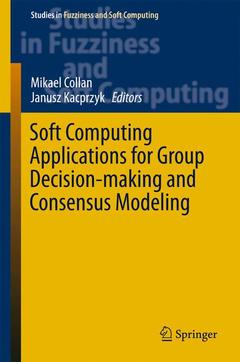Description
Soft Computing Applications for Group Decision-making and Consensus Modeling, Softcover reprint of the original 1st ed. 2018
Studies in Fuzziness and Soft Computing Series, Vol. 357
Coordinators: Collan Mikael, Kacprzyk Janusz
Language: English
Publication date: 07-2017
Support: Print on demand
Publication date: 08-2018
Support: Print on demand
Description
/li>Contents
/li>Comment
/li>
This book offers a concise introduction and comprehensive overview of the state of the art in the field of decision-making and consensus modeling, with a special emphasis on fuzzy methods. It consists of a collection of authoritative contributions reporting on the decision-making process from different perspectives: from psychology to social and political sciences, from decision sciences to data mining, and from computational sciences in general, to artificial and computational intelligence and systems. Written as a homage to Mario Fedrizzi for his scholarly achievements, creative ideas and long lasting services to different scientific communities, it introduces key theoretical concepts, describes new models and methods, and discusses a range of promising real-world applications in the field of decision-making science. It is a timely reference guide and a source of inspiration for advanced students and researchers




